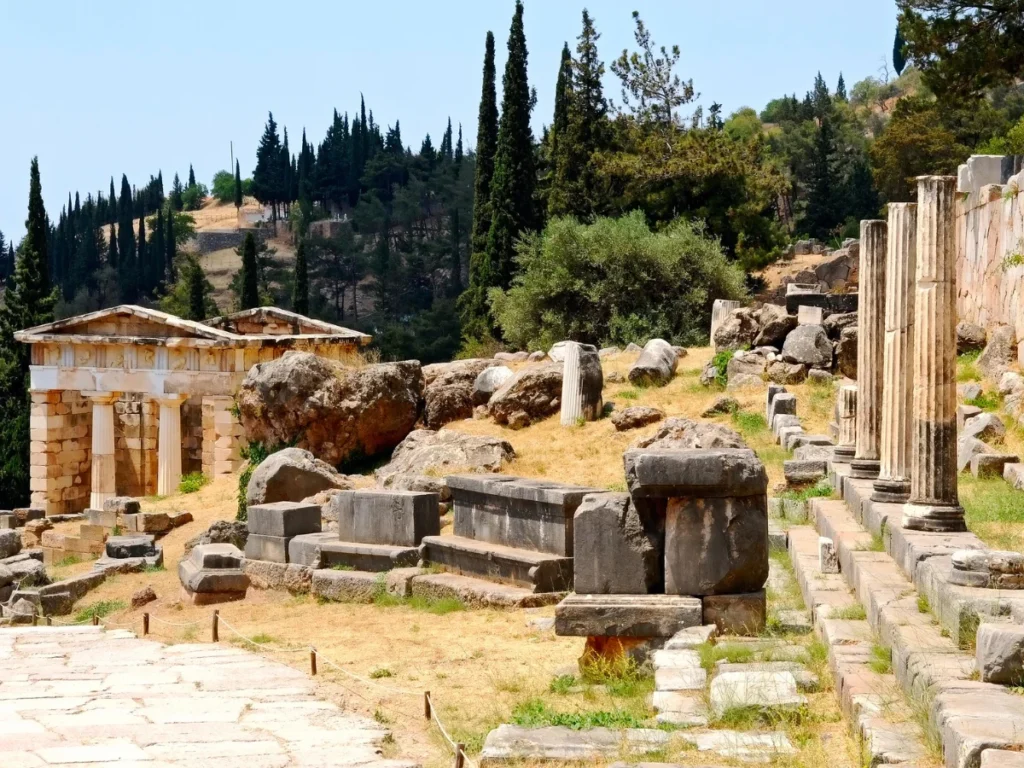Hermes was the dynamic messenger of the Gods in greek mythology
Hermes was the Dynamic Messenger of the Gods in Greek Mythology, embodies diverse roles from messenger to trickster. Son of Zeus and Maia, his cunning nature extends to inventive trickery, reflecting his mastery of communication and eloquence. As the patron of travelers, Hermes guides journeys and protects crossroads. His iconic symbols, from winged sandals to the caduceus, shape language, commerce, and culture, securing his enduring legacy as a multifaceted deity shaping both celestial and mortal realms.

Hermes: The dynamic messenger of the Gods in greek mythology
Introduction
In the vibrant tapestry of ancient Greek mythology, Hermes emerges as a multifaceted deity revered for his versatility and cunning nature. As the swift messenger of the gods and the patron of travelers, he embodies dynamic attributes that extend far beyond his divine responsibilities.
Origins and Roles
Hermes, son of Zeus and Maia, encapsulates a blend of attributes that range from messenger to trickster. His nimble nature is evident from infancy, when he famously stole Apollo’s cattle soon after his birth. As the divine messenger, he bridges the gap between the celestial realm and the mortal world, carrying messages and guiding souls on their journeys.
The Inventive Trickster
Hermes’ multifaceted character embraces a mischievous side as well. His quick wit and cunning demeanor make him a master trickster, often outsmarting gods and mortals alike with his clever ruses. His role as the god of commerce and thieves reflects his affinity for the unexpected and the inventive.
The Patron of Travelers
Hermes’ role as a patron of travelers highlights his ability to navigate both physical and metaphysical realms. Ancient Greeks invoked his protection before embarking on journeys, seeking safe passage and guidance. His association with crossroads emphasizes his significance as a guide and guardian in the liminal spaces between destinations.
Hermes and Communication
As the divine communicator, Hermes embodies the essence of effective communication and eloquence. He lends his name to the term “hermeneutics,” a discipline centered on interpreting texts and messages. This reinforces his enduring influence in shaping the principles of language and interpretation, underscoring his role as a mediator of divine messages.
Cultural Influence
Hermes’ influence resonates beyond mythology into various aspects of Greek culture. He is often depicted with his winged sandals and caduceus, symbols that have become synonymous with communication, commerce, and travel. His presence extends to literary works, philosophical discussions, and artistic representations, reflecting his enduring relevance.
Conclusion
Hermes, the dynamic messenger of the gods, weaves a narrative that traverses diverse realms and roles. From his swift delivery of divine messages to his playful trickster persona, he embodies a range of attributes that capture the essence of communication, travel, and inventive thinking. His legacy resonates through history as a testament to the multifaceted nature of human experience and the intricate interplay between the celestial and mortal spheres.
